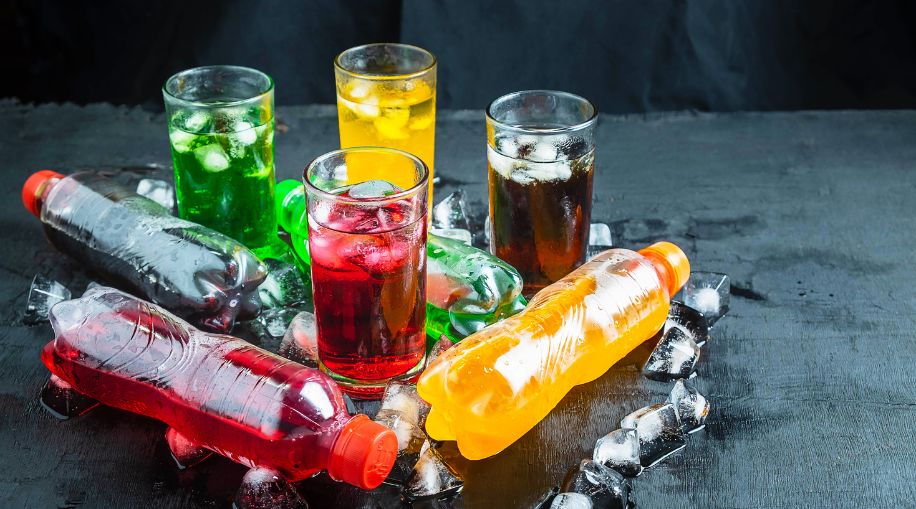Sweet Perils
Cholesterol, a waxy substance found in the blood, is essential for building healthy cells. To help, there's
NEXLETOL (bempedoic acid), a prescription medication used to help lower LDL (low-density lipoprotein) cholesterol, often called "bad cholesterol," in adults.
Sugary Drinks that Increase the Risk of High Cholesterol
Sugary drinks can contribute to a calorie surplus and insulin resistance, which are both factors that can lead to an increase in the production of bad cholesterol and a decrease in good cholesterol. Here are some sugary drinks to avoid.
1. Sodas
Possibly the most popular among sugary drinks, sodas are notorious for their high sugar content. A single can of soda can contain up to 10 teaspoons of sugar, far exceeding the amount recommended for consumption in a day.
2. Fruit-Flavored Drinks
While they may seem like a healthier alternative due to their fruit content, these drinks often contain added sugars and provide little to no nutritional benefit. Consuming 100% fruit drinks with no added sugar is a much healthier alternative.
3. Sports Drinks
Marketed for athletes and individuals involved in intense physical activities, sports drinks can be misleading as they may contain high levels of sugar not necessary for the average person's post-exercise replenishment.
4. Pre-Sweetened Coffees
Coffee beverages from cafes and pre-packaged products can contain high sugar levels akin to or surpassing that of desserts.
5. Pre-Sweetened Teas:
Similar to pre-sweetened coffees, these teas are often heavily laden with sugars, overshadowing any potential health benefits that plain teas might offer.
Understanding Cholesterol
Cholesterol travels through the bloodstream attached to proteins called lipoproteins. Two main forms of lipoproteins are critical to understanding cholesterol and its health implications:
- Low-Density Lipoprotein (LDL): Often referred to as “bad" cholesterol, LDL carries cholesterol particles throughout the body. LDL cholesterol builds up in the walls of the arteries, leading to the narrowing and blockage that can result in heart disease or stroke.
- High-Density Lipoprotein (HDL): Known as “good" cholesterol, HDL picks up excess cholesterol and takes it back to the liver where it is broken down and removed from the body. A higher level of HDL cholesterol is associated with a reduced risk of heart disease and stroke.
There is also a third type of fat in the blood called triglycerides, produced in the liver. High levels of triglycerides can also contribute to the hardening or thickening of artery walls (atherosclerosis), which increases the risk of stroke, heart attack and heart disease.
The Impact of High Cholesterol on Health
High cholesterol itself does not cause symptoms but can lead to severe health complications. It can promote atherosclerosis, a process where arteries become narrowed and hardened due to the buildup of cholesterol and other materials on their walls, ultimately leading to coronary artery disease. This can result in chest pain (angina), heart attacks and strokes.
Moreover, high cholesterol can contribute to the development of peripheral arterial disease, where the arteries to the legs and feet are narrowed, leading to pain and numbness.
Treatments for High Cholesterol
The primary goal in treating high cholesterol is to lower the LDL levels and increase HDL levels in the blood to prevent any risk of heart disease or stroke. This is often achieved through lifestyle changes, such as diet and exercise, along with medication. Here are some of the most common medications used in treating high cholesterol.
- Statins: These drugs work by blocking a substance the body requires to manufacture cholesterol. Statins may also help the body reabsorb cholesterol from existing deposits on arterial walls.
- Cholesterol absorption inhibitors: This medication reduces the amount of dietary cholesterol your body absorbs and can be used in combination with statins for increased effectiveness.
- Bile-acid-binding resins: The liver uses cholesterol to make bile acids, a substance needed for digestion. These medications lower cholesterol indirectly by binding to bile acids, prompting the liver to use excess cholesterol to make more bile acids.
- PCSK9 inhibitors: These work by helping the liver absorb more LDL cholesterol and lower the amount of bad cholesterol circulating in the bloodstream.
NEXLETOL
NEXLETOL (bempedoic acid) is a prescription medication used to help lower LDL (low-density lipoprotein) cholesterol, often called "bad cholesterol," in adults. It is typically prescribed for people who have a condition called heterozygous familial hypercholesterolemia (HeFH) or for those who have established heart disease and need additional cholesterol lowering, despite taking the highest dose of statins they can tolerate.
Here’s how NEXLETOL works:
- Cholesterol reduction: It blocks an enzyme in the liver responsible for producing cholesterol, lowering LDL levels.
- Statin alternative: It is especially useful for people who cannot tolerate high doses of statins, a common cholesterol-lowering drug.
NEXLETOL is taken orally, usually once a day, and may be combined with other cholesterol-lowering treatments such as statins or ezetimibe to improve effectiveness. It’s important to follow a heart-healthy diet alongside medication.
Watching What You Drink
While the enjoyment of sweet drinks might seem harmless at the moment, regular and excessive consumption can lead to high cholesterol among other health issues. A careful reassessment of dietary habits, combined with lifestyle modifications and medications as needed, can significantly contribute to both the prevention and management of high cholesterol, ensuring the maintenance of your long-term cardiovascular health.
Here are some foods you should avoid after 50.
